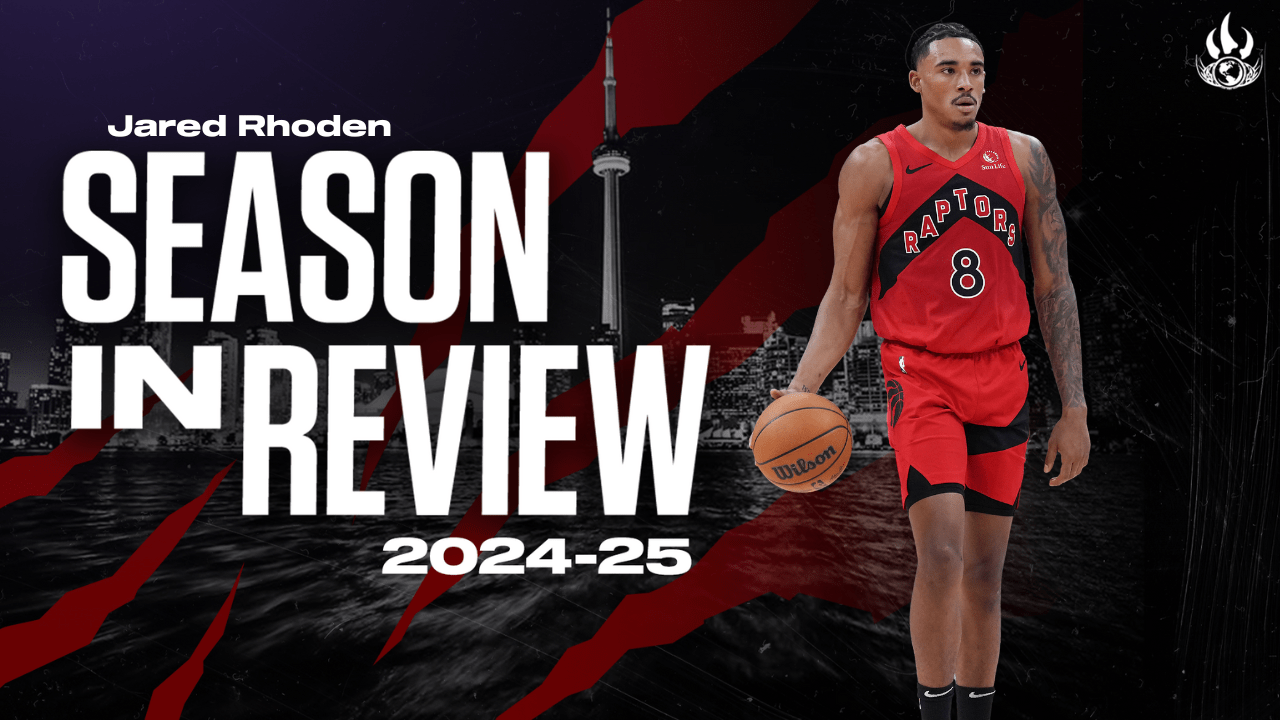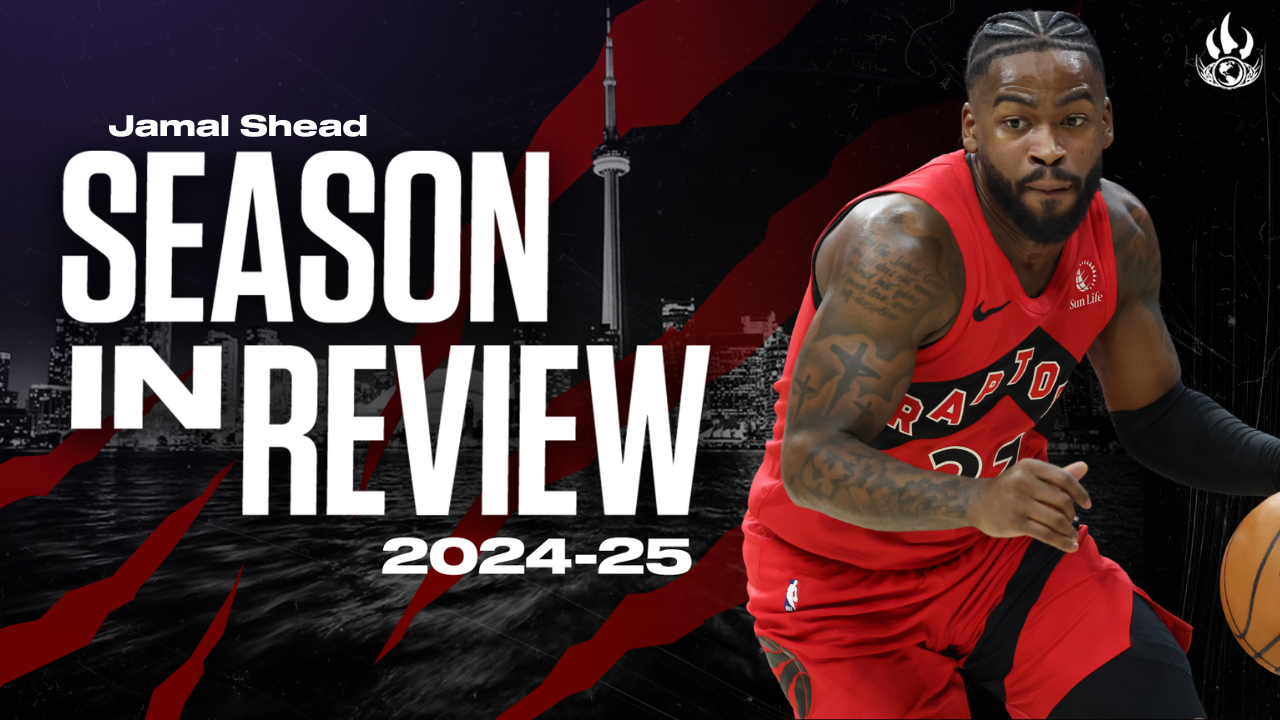It’s that time of year, folks! Rumours will be swirling around in the ether. Fans will be clamouring for players that they’d like to acquire. For some, it’s the most wonderful time of the NBA calendar.
There will also be exhausting levels of speculation.
That said, the Toronto Raptors could have a decently straightforward off-season. They don’t have a ton of cap flexibility (unless they’d like to dip into the luxury tax), and most of their roster spots are already spoken for. It would make sense for Toronto to want to see how this team fits together before shifting things. However, things can change between now and October, and the Raptors might see themselves involved in the trade market. Improvement must always be sought. Even if it’s not for Giannis Antetokounmpo (and it very well could be), the Raptors have some options for making noise via trades.
One of those options has to be Chicago Bulls guard Coby White.
White is in a precarious position with the Bulls. He is on one of the most team-friendly deals in the NBA, making just $12.8M next season. He’s also extension-eligible this summer, but the league’s new collective bargaining agreement only allows the Bulls to offer him a 140% extension. That would be far below what White is currently worth, so he’s likely to test free agency next summer. The Bulls also have to deal with Josh Giddey’s restricted free agency looming this summer, and they will likely have to commit a lot of money to their backcourt if they want to keep both players.
(There is a way for whatever team acquiring White to negotiate a deal with him, but they would have to have active cap space, and the Raptors won’t have that this summer.)
So, there are a few things that have to happen for this to become a Raptors situation:
- The Bulls would have to decide they’d rather trade White than let him enter unrestricted free agency next summer.
- The Bulls would have to be rational and decide they’d like to trade White to get some return proactively. (This is the tricky part.)
- The Raptors would have to be okay with trading for a player who could walk after a year (although they are no stranger to doing something like that and making it work, i.e, Ingram, Quickley. Pre-agency, etc.).
So, what’s the trade?
Raptors Acquire: Coby White + Patrick Williams
Bulls Acquire: RJ Barrett + #39 pick in 2025 + one future second-round pick
Why Would The Raptors Do This?
There is a bit of a logjam for the Raptors in the front-court between Scottie Barnes, Brandon Ingram, and RJ Barrett, who is also extension eligible this summer. Barrett is coming off a positive year for the Raptors, where he averaged 21-6-5 and improved his overall feel in the pick-and-roll, especially as a playmaker. It would be tough to trade the hometown kid. Still, it was reported that the Raptors were potentially looking to move Barrett in the Ingram trade. And teams could very well value his consistency. The potential positional issues and his upcoming contract situation make him the likely trade candidate for this Raptors team.
Instead of offering overlap, White would give Toronto a huge amount of talent in areas that aren’t strengths already on the roster.
Ultimately, this is a way for the Raptors to add another scorer and creator in the guard spot. White is also a 20-point-per-game player and is excellent at working on and off the ball with his combination of pull-up shooting and off-the-catch playmaking. He can work next to Barnes, Ingram, and Quickley in the Raptors’ offensive system. He’s also shown enough upside to believe he has the potential to become an All-Star-level player. White was a good isolation scorer (76th percentile), pick-and-roll ball-handler (65th percentile), and spot-up player for the Bulls, and is also excellent in transition, according to Synergy data.
The Raptors have been desperate for a guard who can finish at the rim (Quickley isn’t that; he shot 44% on runners and 50% at the rim), and White can provide that to a certain degree, shooting about 64% at the rim over his last four seasons, according to Cleaning The Glass.. He’s a capable shooter, hitting 37% off the catch and 35% on pull-ups. Those traits pair exceptionally well with what the Raptors need from that position.
As an aside: There are legitimate defensive questions about a White-Quickley backcourt, but I think it’ll put more pressure on Quickley to level his game up, or the Raptors would likely have to figure out a trade for him next. Or, Ingram, Barnes, and Poeltl offer so much size across the 3-4-5 slots that Toronto could shrink the floor enough to make a small backcourt work.
But in the case of not wanting to pair Quickley and White, I can see a version of this trade with Quickley instead of Barrett as the piece moving to Chicago. That could be more beneficial for the Raptors, who can basically swap out Quickley’s contract for the impending one they’d sign White to. At that point, the Raptors would just be betting on White being better over his contract than Quickley, and I think that’s just a “beauty in the eye of the beholder” type of thing at this point. You can make arguments both ways. White has some strengths that Quickley lacks, and vice versa.
There is obviously an inherent risk to this. White can walk in free agency. But the Raptors have never been afraid to do that. Why start now?
Why Would The Bulls Do This?
I can see Bulls fans seething already. The truth is, Chicago should have traded White during the trade deadline when he had 1.5 years left on his deal. But if they don’t come to some sort of agreement with White, they’d at least be getting something in return.
Also, the Raptors are eating William’s four-year contract, which is a very negative deal at this point, to sweeten the pot for Chicago. That would be a big sweetener in today’s CBA.
The Bulls will have Barrett on the books for two more seasons and hope he can continue to refine his game and help keep them competitive (which is clearly something they want to do). While he also has his warts defensively, Barrett provides more positional size than White does for Chicago.
Essentially, the Bulls get a good player back in return and can dump a contract while trading a player who would have been hard to retain.
It’s swallowing the bad-tasting medicine that’s good for you.
So, what do you think?



